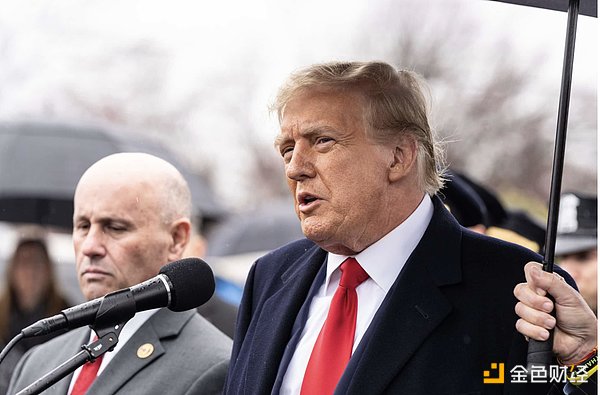Author: Veronica Irwin Source: unchainedcrypto Translation: Shan Ouba, Golden Finance
The Digital Chamber, a blockchain industry organization, sent a letter to Shelley Finlayson, acting director of the Office of Government Ethics (OGE), on Wednesday, asking to remove the requirement that federal workers can only hold "very small amounts" of cryptocurrencies. The current regulations severely limit President-elect Donald Trump's options for the role of "crypto czar." Sources said that Trump's future administration may appoint an OGE director who is willing to relax this regulation.
Cody Carbone, president of the Chamber of Digital Commerce, said he wrote the letter to "show the Trump transition team that this is an issue they need to focus on."
Crypto Czar: Roles and Candidates
Word circulated on Capitol Hill this week that Trump might accept an offer from Carbone and his organization, according to two crypto policy advocates not affiliated with the chamber. At the Nashville Bitcoin 2024 conference this summer, Trump said he would create a "crypto advisory board" to help him make legislative and regulatory decisions. In addition, rumors have been circulating that he may hire a "crypto czar" to serve in an advisory role. According to six Washington sources active in crypto policy lobbying and advocacy, Trump plans to set up both a "crypto czar" and a "crypto advisory board." However, the specific candidates for both may not be clear until later this month, when the cabinet and Republican leadership appointments are finalized.
However, under the OGE's current ethical rules, appointing a crypto czar is much more difficult than selecting members of the advisory board. The advisory board could be made up of successful crypto industry entrepreneurs, such as executives of Bitcoin mining companies or other heads of crypto companies who have recently met with Trump. The crypto czar should not have obvious conflicts of interest in policy, which requires him to have both extensive experience in Washington politics and a deep understanding of the impact of policies on the crypto industry.
For this reason, potential czar candidates are mostly lesser-known people. Some sources mentioned names such as Ron Hammond, who is the director of government relations for the Blockchain Association and meets the requirement of "very small" cryptocurrency holdings, but at only 31 years old, he may be too young for a senior White House position.

Crypto Natives in the Trump Administration?
However, the letter does not only recommend relaxing restrictions on "very small amounts" of cryptocurrency holdings for the role of crypto czar, but rather proposes that it applies to all federal employees. This would include hundreds of positions involved in cryptocurrency regulation, who are currently prohibited from holding cryptocurrencies. While the rule does not explicitly list the applicable agencies, it cites some restricted positions, such as policy analysts at the Treasury Department, employees at the Department of Homeland Security, and positions at the Securities and Exchange Commission (SEC).
Trump promised at the Bitcoin 2024 conference to “fire” current SEC Chairman Gary Gensler on his first day in office, even though he may not have the legal authority to do so. Even so, Gensler is widely expected to either resign before Trump takes office or leave after being demoted to commissioner — an action Trump can legally take.
Cryptocurrency prices have soared since the election, in part on the belief that Trump will appoint a chairman who is less inclined to take enforcement actions against crypto companies and more lenient toward cryptocurrencies when interpreting securities laws. Removing the restriction that SEC staffers cannot hold cryptocurrencies would greatly expand Trump’s pool of candidates. However, it would also raise an obvious conflict of interest: The SEC chairman could hold cryptocurrencies while making relevant regulatory policies.
 Weatherly
Weatherly





